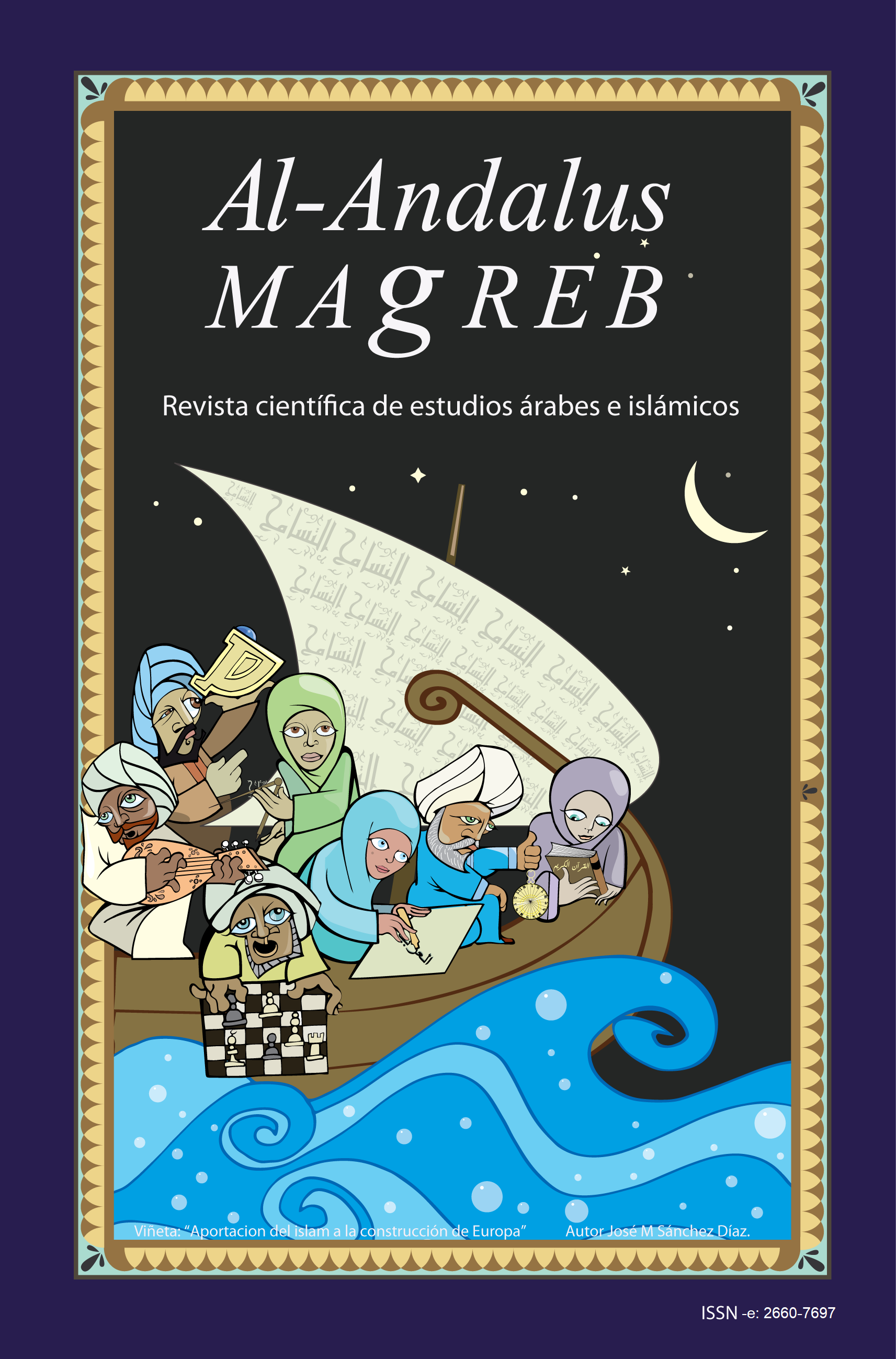The Moroccan man: from proverbial speech to social representation

Downloads
- PDF (Français (France)) 89
- EPUB (Français (France)) 75
- VISOR (Français (France))
- MOVIL (Français (France))
- XML (Français (France)) 85
DOI
https://doi.org/10.25267/AAM.2019.i26.4Info
Abstract
«The Moroccan man: from the proverb to the social representation». Using the “proverbial” approach, we try to examine vocabulary related to qualifiers used to describe Moroccan men by their fellow country-women. These attributes keep circulating whenever women meet in different situations. For a long time, this male territory, discreetly explored by women by means of proverbs, leads us to raise the following questions: what image do women have towards men? And why such proverbs (physical, familial or even pejorative) are stuck to men?
Keywords
Downloads
How to Cite
License

This work is licensed under a Creative Commons Attribution-NonCommercial-NoDerivatives 4.0 International License.
Those authors who have publications with this journal, accept the following terms:
a. Authors may retain their copyright and guarantee the journal the right of first publication of their work, which will be simultaneously subject to Licencia de reconocimiento de Creative Commons that allows third parties to share the work as long as its author is indicated. and its first publication this journal.
b. Authors may adopt other non-exclusive license agreements for the distribution of the version of the published work (eg: deposit it in an institutional electronic file) provided that the initial publication in this journal is indicated.
c. Authors are allowed and recommended to disseminate their work through the Internet (eg: in institutional telematic files or on their website) once the manuscript is accepted, which can lead to interesting exchanges and increase citations of the published work. (See El efecto del acceso abierto).
References
ANSCOMBRE, J-C. 1994. « Proverbes et formes proverbiales : valeur éviden-tielle et argumentative ». Langue française 102, pp. 95‑107.
DAGHUGHI, M. & BIBI, Z. 2010. Recueil de proverbes Marocains : avec leur prononciation en arabe dialectal. Morocco, Al-Ṭabʻah 1, Edisoft.
GREIMAS, A-J. 1960. « Idiotismes, proverbes, dictons ». Cahiers de lexicolo-gie 2, pp. 41-61
KLEIBER, G. 2000. « Sur le sens des proverbes ». Langages 139, 34ᵉ année. La parole proverbiale, sous la direction de Jean-Claude Anscombre, pp. 39-JAKOBSON, R. & RUWET, N. 1978. Essais de linguistique générale1 : Les fondations du langage. Paris, Les Ed. De Minuit.
JAAFAR, H. 2012. Les Noms et les Adjectifs en arabe marocain, approche lexicologique. Thèse de doctorat (non publiée). Fès, Faculté des lettres, Dhar elmehraz.
LAKOFF, G. & JOHNSON, M. 2005. Les Métaphores dans la vie quotidienne. Propositions. Paris, Éd. de Minuit.
LACHHAB, T. 2015. Essai de définition linguistique et culturelle de l’énoncé proverbial : approches historique, linguistique et anthropologique. Thèse de doctorat. Metz, Université de Lorraine, FLL.
MALHERBE, J-F. & SEARLE, J. R. 1973. « Les actes de langage. Essai de philosophie linguistique ». Revue philosophique de Louvain 71, 12, qua-trième série, pp. 807-811. [30 octobre 2019].
NAJJI, M., SABIA, A. & AMRANI, S. (éd.). 2001. À la croisée des proverbes. En : Publications de la Faculté des Lettres 50, Série Études et sémi-naires 14. Oujda, Université Mohammed Premier, Faculté des lettres et des sciences humaines.
QUITOUT, M. 2001. Parlons l’arabe dialectal marocain. Paris, Ed. Le Harmat-tan.
SCHAPIRA, C. 1997. La maxime et le discours d’autorité. En : Coll. Les livres et les hommes. Paris, Sedes.






